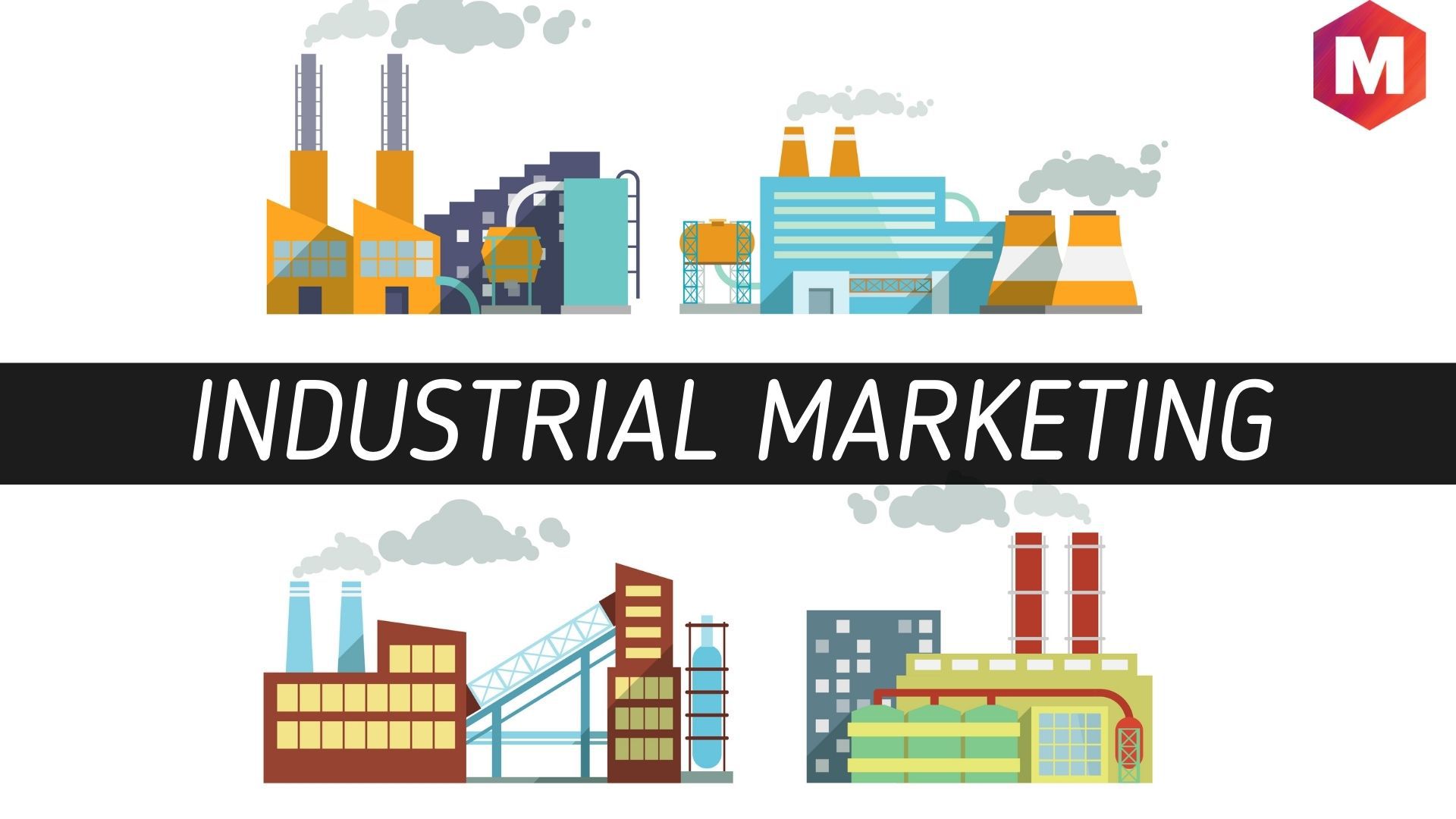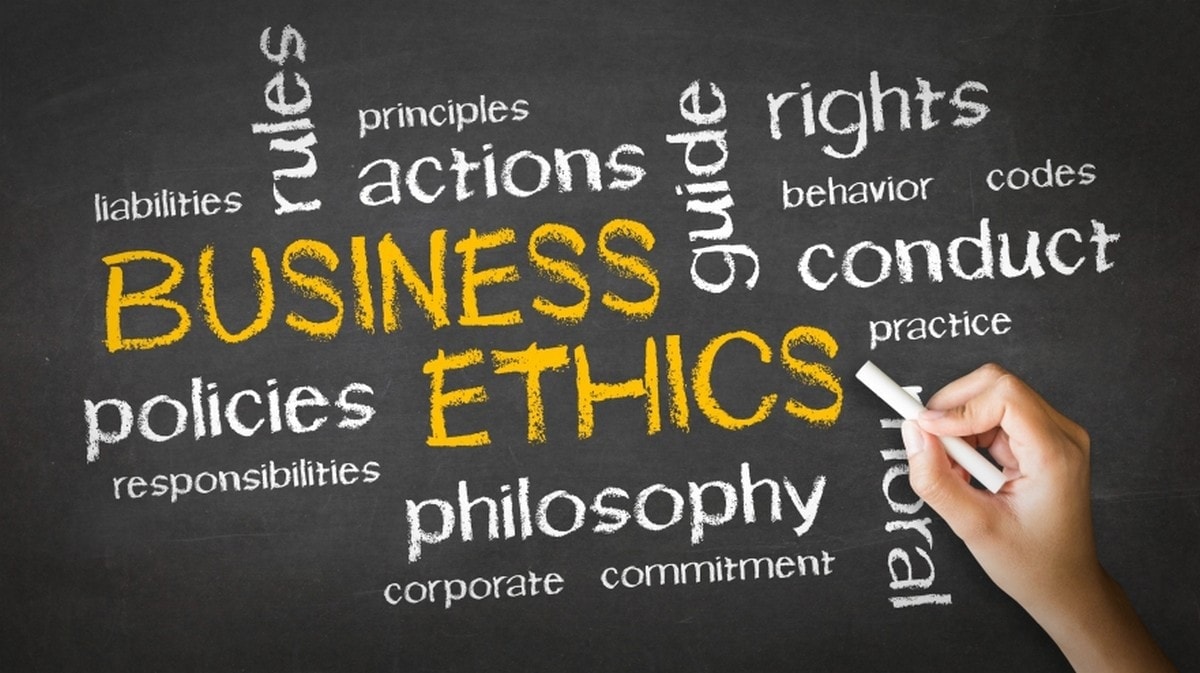
Industrial Marketing - Definition, Strategy, Characteristics, Steps and Difference from Consumer Marketing | Marketing91
Industrial Marketing – Definition, Strategy, Characteristics, Steps and Difference from Consumer Marketing
August 25, 2021 By Hitesh Bhasin Tagged With: Marketing
Industrial marketing is a business-to-business marketing practice that is used for promoting the goods and services of one business or enterprise to another. It is generally used amongst producers, suppliers, OEMs, buyers, etc. A wide range of strategies are used in industrial marketing like-
- Using informational websites with language directed at other enterprises
- Making customized presentations to the management staff of potential clients
- Designing product samples to demonstrate confidence in the quality of the product
- Making online videos displaying products, service providers and sales staff, etc.
Table of Contents
What Is Industrial Marketing?
Definition: Industrial marketing is defined as a marketing plan that one business utilizes to sell industrial products or services to another business for generating leads and optimizing b2b conversions.
Industrial marketing revolves around industrial manufacturers, suppliers, and buyers, plus its channelization is associated with large orders, and long-term relationships, as the sales process in industrial marketing may take months or even years
It is a much more complex form of marketing due to its specialized industrial products. An industrial product or service helps in the production of the end product from the raw materials. Establishing long-term relationships between the producer and customers is a prerequisite for an industrial marketing program.
Who should use Industrial Marketing Strategy?
Industrial marketing is of no use to a company that targets its products at individual customers. A company that makes large-scale manufacturing machinery, however, can use industrial marketing.
For instance, many companies involved in making the large-scale manufacturing machinery would never sell their products to an individual customer and hence, they should use industrial marketing activities to promote those types of equipment to other companies that might have the resource and need to use them.
So, a mass-market OEM would purchase such sorts of machinery to create a thousand units of the same equipment each year. In the same way, furniture manufacturers might use industrial marketing practices with an ultimate goal to promote their business products to different businesses that need furniture for their business offices.
Nature & Scope of Industrial Marketing
The nature of industrial marketing is relatively easy to understand, but the process is complex. Selling to customers directly is easy. The business serves a limited number of products to its customers. In B2B marketing, the business sells its products to other sellers who will then sell to end customers.
In B2C marketing, the business needs to know the taste and preferences of a smaller group of people, and with good salesmanship, it can quickly seal the deal. However, if the business engages in B2B marketing, it needs to know a large group of diverse people across various locations.
Its nature incorporates inbound marketing strategies to pull in businesses as potential customers by creating valuable content and experiences tailored to them to boost lead generation and optimize conversions of qualified leads.
Industrial marketing has a broader scope as it deals with customers indirectly. This means it needs to think about both the middlemen and the customers when marketing its products. The focus will constantly be marketing to other brands first. This allows the business to specialize in a specific field.
What are the characteristics of Industrial Marketing?
As it is clear that the buying processes of industrial marketing are associated with targeting, connecting, and converting other enterprises or businesses, the following are the key features associated with the whole process-
1. Fewer yet Larger Markets
Buyers are way fewer as opposed to consumer buyers, but these buyers buy in bulk.
2. Well-established Relations
The relationship between buyers and sellers is much closer than that of a consumer and the seller. This is because changing sellers costs a lot of time, money, and effort once a relationship is formed.
Advertisement report
3. Complex Process
The entire buying and selling process is extremely complex. A lot of approval is needed from various officials.
4. Derived Demand
The demand for industrial goods is derived from the demand for the final product sold to consumers. If the demand for the good consumer increases, so makes the demand for the industrial good and vice-versa.
5. Inelastic Demand
The demand for industrial goods and services is not affected by changes in the price of the product or service. This is the notion of inelastic demand. It is especially applicable in the short run.
6. Fluctuating Demand
The demand for industrial goods and services is more volatile than that of consumer goods and services.
7. Professional Buyers
Industrial goods are often purchased by professionally trained agents who have a thorough knowledge of the products they are trying to purchase. Customer marketing does not always have to consider the customer being a well-informed bargainer. This is a unique feature of the industrial markets.
3 Stages of Industrial Business Marketing
The stages are explained from both the buyer’s and marketers’ points of view. Let us have a look at these three stages here and now-
Stage 1: Research
The buyer initiates their search process regarding what they want to buy. The seller must try their best to be discovered as early as possible. The buying process in this industry is more complex and more prolonged. Getting discovered first gives the marketer a more significant influence on the buyer.
Stage 2: Evaluation
The research leads the buyer to develop a list of products and services they can choose from. This helps them make a more informed buying decision. In this stage, the marketer needs to prove to the buyer that their business should be the buyer’s choice.
Stage 3: Purchase
The buyer in this stage finally decides what they want to buy. Of course, by now, the marketer should have done their job.
Industrial Marketing vs Consumer Marketing
The buying process incorporated in industrial marketing is quite different from consumer marketing as industrial marketing is directed towards businesses while consumer marketing is directed towards the customers or end-users.
Because of specific behavioral patterns of the industrial buyers, the associated marketing strategies are also quite different. Some of the key ways through which industrial marketing is different from consumer marketing are-
1. Industrial Buying process has Specific Needs
Mass marketing does not work for industrial marketers as the buyers have particular needs. In addition, the products are generally technical and hence need a much more targeted approach.
2. The Role of Research Is Greater in Industrial Marketing
Again, as product marketing is technical, the marketer needs to fulfill the buyer’s specific needs. The buyer, too, engages in a lot of research. The marketer needs to ensure that the product or service can meet the expectations of the buyer.
3. Purchase Leads to Partnership
A B2B purchase often results in the forming of a partnership. The sale of such products or services is an especially long process. Earning the trust of the industrial buyer is an essential step leading to purchase. If the buyer wants to make a similar purchase later, they may not want to go through this ordeal again. As a purchase leads to buyers and sellers working together for months or even years, it leads to forming a partnership.
Advertisement report
7 Steps of Industrial Marketing Strategy
The following are the steps involved in the implementation of successful industrial marketing strategies to generate new leads and new customers
Step 1: Evaluate Your Current Marketing Strategy
Determine your new strategy by first understanding your previous strategies. Next, you need to look at how well you have or have not met your previously determined goals. Another aspect of analyzing is the work of your competitors. Analyze what they are doing and find ways to do it better than them.
Step 2: Determine Your Target Audience
Your target audience determines almost all your motivation behind your actions and strategies. The target audience may be a fictional concept, but it needs to be thoroughly professionally researched to be a good representation of your ideal customer.
If your promotional or educational content is planned as per the inclinations of your target audience, it will lead to higher conversion rates. Specific content targeting specific buyers can as easily do the trick. As mentioned earlier, mass marketing is not an option for an industrial marketer.
Step 3: Establish Your Metrics and Goals
Data is essential to any marketer. If you are not meeting your required ROI, why continue the same marketing strategies? First, you need to determine your goals. Make sure you set SMART goals (Specific, measurable, achievable, relevant, and time-bound).
Next, analyze your performance and ensure the metrics you analyze meet your goals. Any difference between the goal and the result determines your future marketing strategies. Some of the metrics you may track are website traffic, landing conversion rates, cost per lead, bounce rate, etc.
Step 4: Know your Digital Marketing Efforts for Industrial lead generation
From website design to regularly updated blogs to keyword research, paid advertising, and using google analytics, there are wide ranges of digital marketing endeavors that a business today might use to optimize its industrial marketing campaigns. Some of the key online marketing efforts you might try are
1. Social Media Platforms
Industrial marketing does not have to be boring. Social media marketing can be used in industrial marketing too. Social media is a tool to connect to people worldwide. It is a common tool in marketing to consumers but can be used for industrial marketing too.
2. Blogs
Blogs are popular marketing tools. Since this form of marketing requires a lot of research due to the technical nature of the products, marketers can use blogs to disseminate relevant information.
Advertisement report
3.Videos
Successful B2B marketers create and use videos as a powerful marketing tool that provides visual information.
4. Microsites
A microsite is an individual web page, or it can also be a small cluster of web pages. It can have its URL and is a great industrial marketing tool.
5. Email Marketing
Email marketing is an enormously powerful marketing tool that has proven its worth over the last few decades. It acts as a great tool to personalize and disseminate relevant information to buyers.
6. Search Engine Optimization (SEO)
SEO is one of the key ways to rank on search engines. By doing primary keyword research and channelizing SEO efforts to optimize your business presence in front of your target businesses, you will be able to make the most of your industrial marketing campaigns.
7. A/B Testing
A/B testing can be used in industrial online marketing practices to find out the best performance across a website, blog, email, etc. Some of the industrial marketing materials you may AB test are Copy length, Subject lines, Imagery, Colors, Form location, etc.
Step 5: Do Collaboration of Your Industrial Marketing With Sales
Though the aforementioned steps would help you get the leads, your sales team must make efforts and develop relationships to convert those leads. You can manage them in the sales funnel via Customer Relationship Management (CRM) tools.
CRM will enable your sales team to evaluate new prospects by using a scoring system, sending tracked emails, and making calls to the best leads.
Step 6: Budgeting and staffing for your Industrial Marketing Efforts
There are three possible routes any business can opt for when making budgeting and staffing decisions.
1. Continue with your existing staff
You can use your existing staff to develop your marketing strategies. An advantage of this method is that you do not have to splurge on staffing. However, your staff members may not be experts in this field. As a result, they may end up dividing their time and focus across various projects.
2. Hiring an internal marketing employee
Hiring an internal marketing employee saves you time to find the right agency and agent to fulfill your marketing needs. A disadvantage, however, is additional salary costs, benefits, payroll taxes, etc.
3. Partnering with an Industrial Marketing Agency
Hiring an outside agency can allow you to exploit the benefits of the agency’s experience and expertise. However, this is not free of cost. You need to invest both your time and money to find the right agency for you. Furthermore, this partnership will be relatively long-term. You need to form a trusting relationship with a third-party company.
Step 7- Measuring Industrial Marketing Success
There are various metrics to track to determine the success of industrial marketing endeavors. You need to set goals for revenue, total new contacts, sales-qualified leads, website traffic, visitor-to-lead conversion, etc.
By setting benchmarks, you will be able to measure the results of your marketing campaigns against those benchmarks.
What is an Industrial Marketing example?
1. Intuit Infographic
Intuit creates industrial marketing content for adding value to the lives of its audiences. The example shared above suggests the growing trend of work from the home system in the UK and how it has affected the work culture there.
2. Litmus
Litmus being an e-mail testing and analysis platform comes up with unique, creative, and appealing email campaigns. Instead of using static text, they use eye-catching GIFs and eye-catching colors to let readers feel that browsing through a professionally designed website.
3. Hootsuite
Hootsuite utilizes engaging videos for highlighting the personality of its clients in each case study. You can notice this on their YouTube channel.
Conclusion
On the concluding note, it is clear that industrial marketing is a branch of marketing, advertising, communications, and sales that is used for promoting the goods and services of one business to other businesses instead of targeting specific customers.
It generally revolves around large orders and long-term relationships between a manufacturer and client. How effective do you find industrial marketing practices for the b2b businesses? Share your opinion with us in the comment section below.








